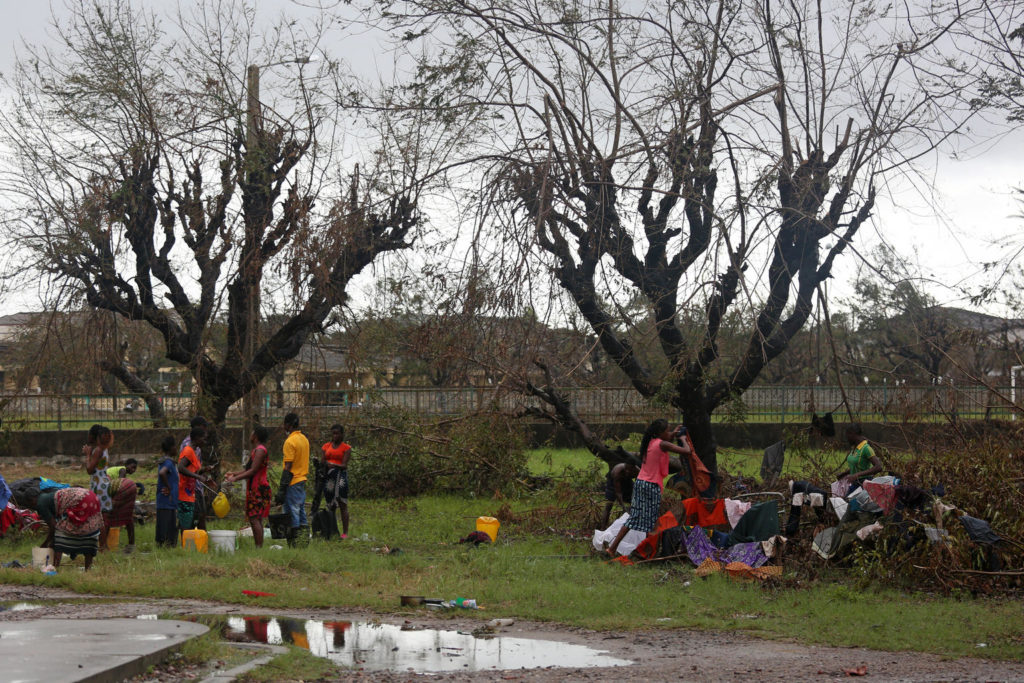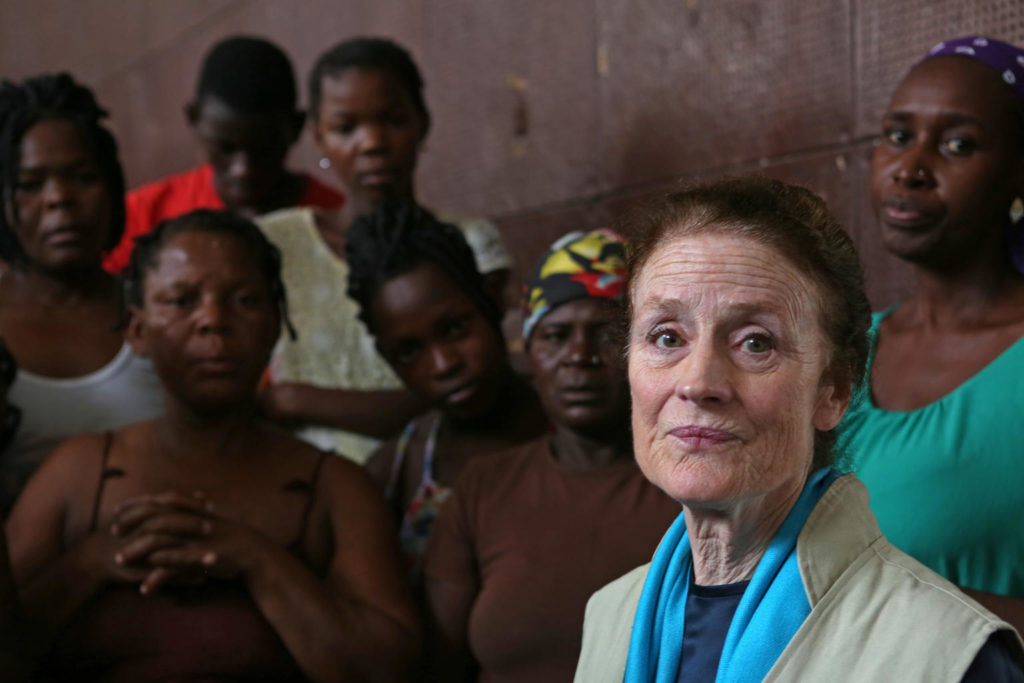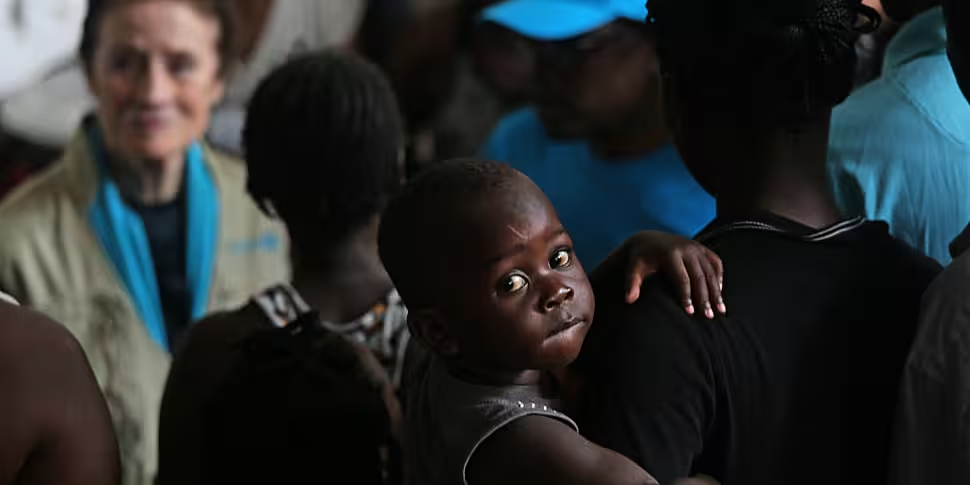The United Nations has said the death toll following Cyclone Idai in southern Africa is set to rise.
The UN Secretary-General António Guterres has called for more support from other nations to help in the response.
In a statement on Friday, Mr Guterres said he was "deeply saddened by the loss of life and heart-wrenching images of human suffering" in Mozambique, Malawi and Zimbabwe.
He also praised rescue teams "who have been working around the clock to save thousands of lives".
"These heroes have not only rescued families off roofs, but are also delivering food, water purification tablets and other life-saving humanitarian assistance to survivors after communities have literally been washed away".
"What is needed now are funds to support the response in the days, weeks and months to come".
He added that while the UN has released US$20m (€17.6m) from its emergency fund, "far greater international support is needed."
Ireland has previously pledged €400,000 for the relief effort.
Hundreds of families in Mozambique, Malawi and Zimbabwe have lost everything because of #CycloneIdai.
The @UN is on the ground providing life-saving assistance. But you can help too ➡️ https://t.co/WWHiqsZB8C pic.twitter.com/ivwBfpt6OS— UN Humanitarian (@UNOCHA) March 21, 2019
For Mozambique alone, the World Food Programme (WFP) is seeking more than US$121m (€106m) to help 1.7 million people affected through the next three months.
The official death toll in Mozambique has risen to at least 242 people, "but many areas remain inundated and tragically, the counting of the dead will take some time," UN Office for the Coordination of Humanitarian Affairs (OCHA) spokesperson Jens Laerke said.
"So, we do expect the death toll to rise as that progresses."
 Internally displaced people dry clothes at a secondary school used to shelter evacuees from Cyclone Idai in Beira, Mozambique | Image: © UNICEF
Internally displaced people dry clothes at a secondary school used to shelter evacuees from Cyclone Idai in Beira, Mozambique | Image: © UNICEFIn Zimbabwe, authorities have reported 139 deaths and 189 people missing following flooding and the cyclone, while more than 4,300 people have been displaced.
Malawi was impacted far less by the cyclone than by flooding that began on March 5th, which has affected up to 920,000 people.
According to the OCHA, 11 helicopters from the UN and other nations are involved in operations, and more are on the way.
Thirty boats are also involved in the humanitarian effort, funded by the WFP.
In worst-hit Mozambique, according to the OCHA, at least 65,000 people are sheltering in more than 100 temporary sites - while most have found refuge in schools and churches.
Food, safe drinking water and shelter are also urgently needed.
UNICEF executive director Henrietta Fore has said there is "a race against time to help and protect children in the disaster-ravaged areas of Mozambique", as she returned from Beira - one of the worst affected areas.
According to initial government estimates, 1.8 million people across the country, including 900,000 children, have been affected by the cyclone.
"The situation will get worse before it gets better", Fore said.
"Aid agencies are barely beginning to see the scale of the damage.
"Entire villages have been submerged, buildings have been flattened, and schools and health care centres have been destroyed.
"While the search and rescue operations continue, it is critical that we take all necessary measures to prevent the spread of water-borne diseases which can turn this disaster into a major catastrophe."
 UNICEF executive director Henrietta Fore speaks with internally displaced people as she visits a secondary school used to shelter evacuees from Cyclone Idai in Beira, Mozambique | Image: © UNICEF
UNICEF executive director Henrietta Fore speaks with internally displaced people as she visits a secondary school used to shelter evacuees from Cyclone Idai in Beira, Mozambique | Image: © UNICEFInitial assessments in Beira indicate that more than 2,600 classrooms have been destroyed and 39 health centres impacted.
At least 11,000 houses have been totally destroyed.
In Beira, Ms Fore visited a school which had turned into a shelter for displaced families. Classrooms were converted into overcrowded bedrooms with limited access to water and sanitation.
"We are particularly concerned about the safety and well-being of women and children who are still waiting to be rescued or are crammed in temporary shelters and at risk of violence and abuse," she said.
"We are also concerned about children who were orphaned by the cyclone or became separated from their parents in the chaos that followed."
Main image: A young boy in in Beira, Mozambique looks toward the camera as UNICEF executive director Henrietta Fore speaks with internally displaced people as she visits a secondary school used to shelter evacuees from Cyclone Idai | Image: © UNICEF









